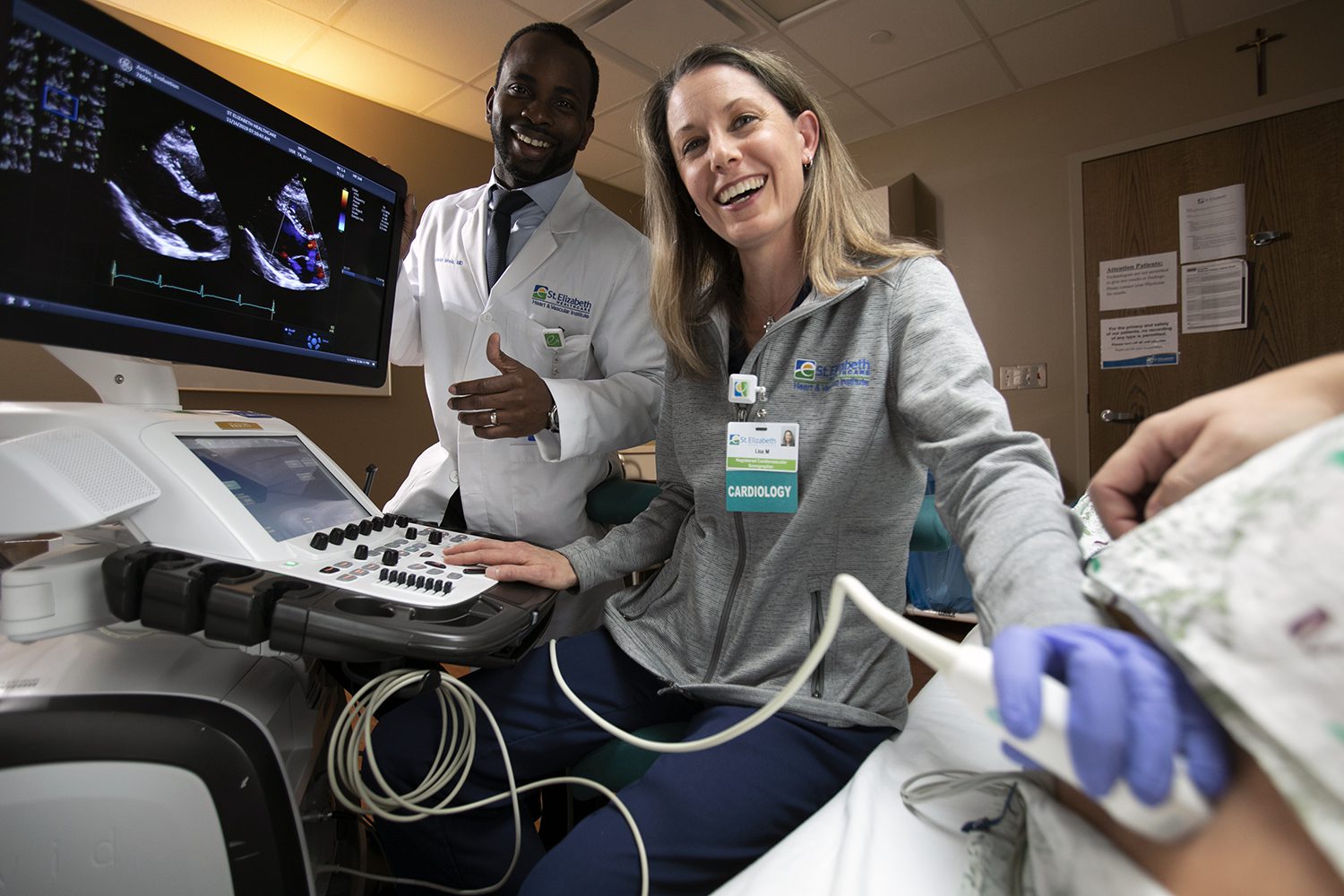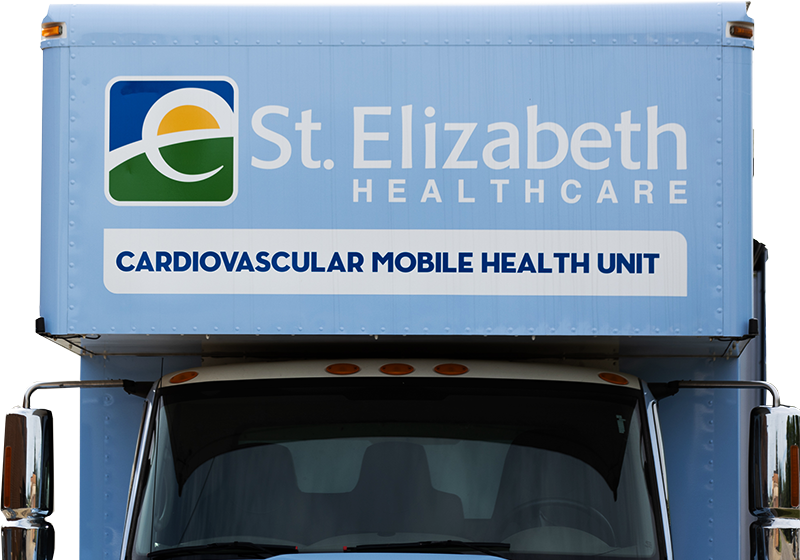Heart and Vascular Disease Diagnosis
Doctors at the Florence Wormald Heart & Vascular Institute at St. Elizabeth use a wide range of diagnostic tests to identify disease and plan treatment. We offer specialized testing for heart arrhythmias, as well as minimally invasive diagnostic exams in our Cardiac Catheterization Labs.
Noninvasive Heart and Vascular Testing
Your doctor may order one or more of these noninvasive exams to assess your condition and determine the best course of treatment:
Blood tests – Can determine cholesterol and fat levels in your blood, check for infection, or search for proteins or other elements that can signal heart disease.
Computed tomography (CT) – Uses X-rays to detect calcium deposits found in plaque, which accumulates inside the walls of arteries.
Echocardiogram – Allows your doctor to see your heart beating, as well as your heart valves and other structures. This test uses sound waves, also known as ultrasound, so there’s no exposure to radiation.
EKG – An electrocardiogram (ECG or EKG) records the electrical signal from your heart using electrodes placed on the chest. The electrical signals are shown as waves on a monitor or printer that are interpreted to diagnose various heart conditions.
Magnetic resonance imaging (MRI) – Creates detailed, still and moving pictures of your heart and blood vessels from many views. MRI scans use magnetic and radio waves (no radiation), so you can’t have this type of scan if you have a metallic implant.
Nuclear medicine test (PET scan) – Determines how much blood your heart pumps with each beat, using a small amount of a radioactive substance (tracer).
PET/CT scan – Combines CT and nuclear medicine testing to examine how your blood flows through your heart. A PET/CT also allows your doctor to see inside your arteries to look for plaque formation.
Stress test – Allows your doctor to monitor your heart while you exercise. If you can’t exercise, your doctor will give you medicine that simulates exercise by increasing blood flow to your heart. Stress tests can be combined with other exams, such as a stress echocardiogram or a nuclear stress test.
Vascular ultrasound – Examines circulation in your blood vessels and can identify peripheral artery disease (PAD). The exam can look at vessels in your neck (carotid), abdomen, arms and legs, or kidneys. We offer diagnostic testing at a variety of locations. Your doctor will discuss which tests are right for you.



